Are Sphynx Cats Friendly? Exploring Their Playful and Affectionate Nature

If you've ever wondered whether Sphynx cats are friendly, the short answer is: absolutely! These unique, hairless felines are among the most affectionate and sociable cat breeds you'll ever meet. But their friendliness goes far beyond just being cuddly lap cats.
Sphynx cats have vibrant personalities filled with playfulness, curiosity, and an almost dog-like devotion to their human companions. Let's dive into what makes these remarkable cats such loving and entertaining pets.
What Makes Sphynx Cats So Friendly?
To truly understand why Sphynx cats are so friendly, we need to look at both their natural temperament and the intentional breeding that shaped this remarkable breed.
Born Social: It's in Their Nature
Sphynx cats aren't just friendly by chance. It's deeply ingrained in their personality. Unlike some cat breeds that prefer independence, Sphynx cats genuinely crave human interaction. They're the type of cat that will greet you at the door, follow you from room to room, and insist on being part of whatever you're doing. This inherent sociability makes them ideal companions for people who want a truly interactive pet.
Their social nature is so pronounced that many Sphynx owners describe their cats as having more in common with dogs than typical felines. They don't just tolerate human presence. They actively seek it out and thrive on it. Whether you're working at your desk, cooking dinner, or watching TV, expect your Sphynx to be right there with you, participating in their own unique way.

Bred for Companionship
The modern Sphynx cat emerged in the 1960s through careful breeding programs in Canada. Breeders didn't just focus on their unique hairless appearance. They also selected for temperament, prioritizing friendly and sociable cats for breeding.
The result? A breed known for being exceptionally friendly, tolerant, and people-oriented. This deliberate breeding for personality traits means that friendliness is as much a hallmark of the Sphynx as their distinctive looks.
This is why the question "Are Sphynx cats friendly?" can be answered so confidently. It's literally been bred into them over generations of careful selection.
The Affectionate Side of Sphynx Cats
When people ask if Sphynx cats are friendly, they're often really asking about affection levels. This is where Sphynx truly shines.
Heat-Seeking Cuddle Monsters
One of the most endearing traits of Sphynx cats is their love of warmth. And what better heat source than a loving human? Without fur to keep them cozy, Sphynx cats naturally seek out warm spots, which often means burrowing under blankets or snuggling directly against you. Many owners describe their Sphynx as "velcro cats" because they stick so close!
This isn't just about temperature regulation, though that's certainly part of it. Sphynx cats form deep emotional bonds with their humans and genuinely enjoy physical closeness. They'll drape themselves across your lap, nestle into the crook of your arm, or even rest on your shoulders like a warm, purring scarf. The warmth you feel isn't just physical. It's the warmth of genuine feline affection.
Signs your Sphynx loves you:
-
Following you everywhere, even to the bathroom
-
Sleeping on or next to you every night
-
Kneading on you with their paws (making biscuits!)
-
Head-butting you for attention
-
Purring constantly when near you
-
Bringing you toys as gifts
-
Slow blinking at you across the room
They Actually Miss You
Unlike cats with a reputation for aloofness, Sphynx cats genuinely miss their owners when apart. Many Sphynx parents report that their cats greet them enthusiastically at the door and show visible excitement when reunited. Some Sphynx even recognize the sound of their owner's car pulling into the driveway and rush to the window in anticipation.
This dog-like loyalty is one reason why Sphynx cats form such strong bonds with their families. They don't just see you as a food dispenser. They see you as their favorite companion and trusted friend. This level of attachment is rare in the cat world and is one of the defining characteristics that make the Sphynx cat's friendly nature so special.
The Playful Personality of Sphynx Cats
Being affectionate is only half the story. Sphynx cats also have an incredibly playful side that keeps their families entertained daily.

Endless Energy and Entertainment
Sphynx are also hilariously playful! These cats maintain their kitten-like energy well into adulthood. They're natural entertainers who love showing off and making their humans laugh. Whether it's zooming around the house at full speed, performing acrobatic leaps, or inventing their own games, Sphynx cats know how to have fun.
Their playfulness is interactive and engaging. Unlike cats that bat at toys alone in the corner, Sphynx cats want you involved in their play. They'll bring toys to you, initiate games of chase, and even invent activities to get your attention.
Favorite Sphynx activities:
-
Interactive play with feather wands and laser pointers
-
Fetch games (yes, really!)
-
Puzzle toys and treat dispensers
-
Climbing cat trees and exploring high perches
-
Playing with other pets or human family members
-
Hide-and-seek around the house
-
"Helping" with household chores by getting in the way
Intelligent and Curious
Sphynx cats aren't just playful. They're remarkably smart. They love problem-solving and can often figure out how to open doors, drawers, or get into places you'd rather they didn't! This intelligence, combined with their friendly nature, makes them highly trainable. Many Sphynx cats can learn tricks, walk on leashes, and even play interactive games that challenge their minds.
Their curiosity drives them to investigate everything in their environment. Nothing escapes their attention. Some owners even teach their Sphynx cats to perform impressive tricks like sitting, high-fiving, or coming when called. This trainability, combined with their eagerness to please, makes them wonderful companions for people who enjoy interactive pet ownership.
Engage with them as much as you can. This not only gives them enjoyment but also strengthens the bond between you and helps channel their considerable energy into positive activities.
Social Butterflies: Sphynx Cats with Others
One of the most remarkable aspects of why Sphynx cats are so friendly is how well they get along with everyone, not just their primary owners.
Great with Kids
Thanks to their patient and tolerant nature, Sphynx cats typically do wonderfully with children. They're playful enough to keep kids entertained but gentle enough to be safe playmates.
While they'll remove themselves from overwhelming situations, they rarely resort to scratching or biting. This patience makes them excellent family cats when children are taught to handle them respectfully.
Pet-Friendly Companions
Wondering if your Sphynx will get along with your other pets? The answer is usually yes! Sphynx cats bond well with other cats, dogs, and even smaller pets when properly introduced. They don't just tolerate other animals—they actively seek companionship from them. It's not uncommon to find a Sphynx cuddled up with the family dog or grooming another cat.
They Love Guests Too
While some cats hide when visitors arrive, Sphynx cats are more likely to investigate and greet new people. They're naturally curious and friendly toward strangers, often winning over even self-proclaimed "non-cat people."
Don't be surprised if your Sphynx becomes the star of your gatherings, making the rounds to greet each guest personally. This social confidence is part of what makes people ask, "Why are Sphynx cats so friendly?"
Understanding Sphynx Body Language
Learning to read your Sphynx's communication helps you respond appropriately to their friendly overtures and understand their needs.
Reading Their Friendly Signals
Sphynx cats are expressive and communicate their affection clearly through a variety of behaviors:
-
Slow blinks: Often called "cat kisses," this is a cat's way of saying "I love you" and showing complete trust. If your Sphynx slowly blinks at you, try blinking back slowly. It's a form of feline communication that strengthens your bond.
-
Exposed belly: When a Sphynx rolls over and shows its belly, it's a sign of complete trust and vulnerability. However, this isn't always an invitation to touch. Some cats show their belly as a greeting rather than a request for belly rubs.
-
Tail up with a curve: A tail held high with a slight curve at the tip is a friendly greeting. It's the equivalent of a happy wave and shows your Sphynx is pleased to see you.
-
Chirping or trilling sounds: These happy vocalizations are often used when a Sphynx sees their favorite person or is excited about something. It's a distinctly positive sound.
-
Kneading: This behavior from kittenhood shows contentment and affection. Some people call it "making biscuits," and it's one of the most endearing Sphynx behaviors.
-
Head bunting: When your Sphynx bumps their head against you, they're marking you with their scent glands and showing affection.
When They Need Space
Even the friendliest Sphynx occasionally needs alone time. Respecting their boundaries is crucial to maintaining trust. Watch for signs like flattened ears, a swishing or puffed tail, dilated pupils, or simply walking away.
Sphynx cats are generally very communicative about their needs. If they need space, they'll let you know, and honoring those signals actually strengthens your relationship. A Sphynx that knows its boundaries will be respected and become even more confident and affectionate.

Caring for Your Friendly Sphynx
Proper care ensures your Sphynx remains the happy, healthy, friendly companion they're meant to be.
Meeting Their Social Needs
Because Sphynx cats are so people-oriented, they don't do well with long periods of isolation. Their need for companionship isn't just a preference. It's a genuine emotional requirement. If you work long hours or travel frequently, consider getting two Sphynx cats so they can keep each other company.
Regular interactive play sessions, cuddling time, and simply being in the same room help meet their emotional needs. Talk to your Sphynx throughout the day. Many owners find that their cats respond to conversation and seem to enjoy the interaction.
Grooming: Bonding Time
Due to their lack of fur, Sphynx cats require regular baths to remove excess oils from their skin. While this might sound like a chore, many Sphynx actually enjoy bath time, especially when introduced to it as kittens, and it becomes a wonderful bonding activity.
The one-on-one attention during grooming sessions reinforces the Sphynx cat-friendly bond you share. Many owners find that their Sphynx purrs throughout grooming sessions, clearly enjoying the attention and care.
Keeping Them Comfortable
Without fur for insulation, Sphynx cats are sensitive to temperature extremes. In cooler weather, provide warm bedding, cozy sweaters, and heated spots like heated cat beds or sunny windowsills. Many Sphynx love burrowing under blankets, so make sure they have access to soft blankets.
In warmer months, protect them from sunburn with pet-safe sunscreen if they'll be in direct sunlight, and ensure they have cool, shaded areas. A comfortable Sphynx is a friendly, happy Sphynx!
Are Sphynx Cats Right for You?
Before bringing home a Sphynx, consider whether their friendly, demanding nature fits your lifestyle.
Sphynx cats are perfect for:
-
People who want an interactive, affectionate companion and enjoy constant feline attention
-
Families with children or other pets looking for a sociable addition
-
Those who enjoy playful, energetic cats with personality to spare
-
Anyone who can provide lots of attention, socialization, and interactive play
-
Cat lovers who appreciate unique personalities and don't mind the extra grooming needs
-
People who work from home or have flexible schedules
They might not be ideal if:
-
You prefer independent cats that don't demand constant attention
-
You're away from home for very long periods regularly without pet companionship
-
You're not prepared for their grooming, bathing, and temperature-related care needs
-
You want a low-maintenance pet that entertains itself
-
You prefer cats that are seen more than heard (Sphynx can be quite vocal!)
Conclusion
So, are Sphynx cats friendly? Without a doubt! These remarkable felines combine affectionate cuddle-bug tendencies with playful, energetic personalities and genuine social intelligence. They're not just pets. They're interactive companions who want to be involved in every aspect of your life. Their warmth (both literally and figuratively), their entertaining antics, and their deep capacity for bonding make them truly special additions to any loving home.
Understanding why Sphynx cats are so friendly through both their breeding history and inherent temperament helps us appreciate these unique cats even more. They're living proof that a cat's personality matters just as much as their appearance, and in the case of Sphynx cats, both are equally extraordinary.
FAQs
Are Sphynx cats friendlier than other breeds?
Yes, Sphynx cats are consistently ranked among the friendliest cat breeds. Their desire for human interaction, tolerance of handling, and affectionate nature set them apart from more independent breeds. While individual personalities vary, the breed as a whole is known for exceptional friendliness.
Do Sphynx cats get along well with other pets?
Absolutely! Sphynx cats are generally social and can bond wonderfully with other cats, dogs, and even smaller pets when properly introduced. Their friendly nature extends beyond humans to other animals in the household.
Are Sphynx cats good with children?
Yes, their patient, playful, and tolerant nature makes them excellent family cats. They enjoy the energy and attention that children provide and are generally gentle, even with younger kids who are still learning how to interact with pets.
Do Sphynx cats like to be held?
Most Sphynx cats love being held and will often seek out your lap or arms for warmth and affection. Many enjoy being carried around or draped over shoulders. However, each cat has individual preferences, and some may prefer sitting next to you rather than being held.
Can Sphynx cats be left alone during the day?
While they can handle some alone time, Sphynx cats are very social and don't thrive with prolonged isolation. If you work full-time, consider getting two Sphynx to keep each other company, or ensure you have plenty of interactive time when home. They need more social interaction than most cat breeds.





















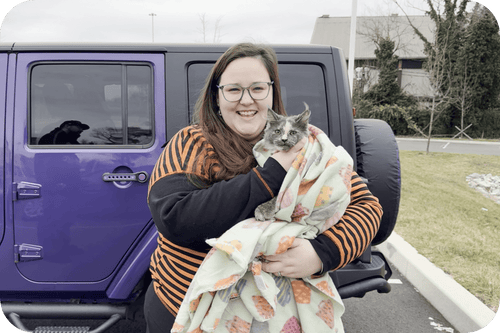




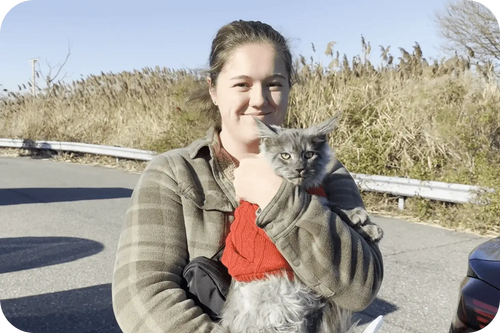
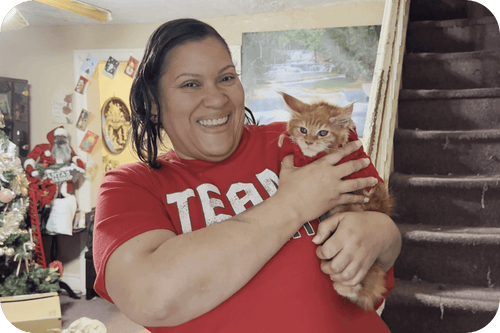
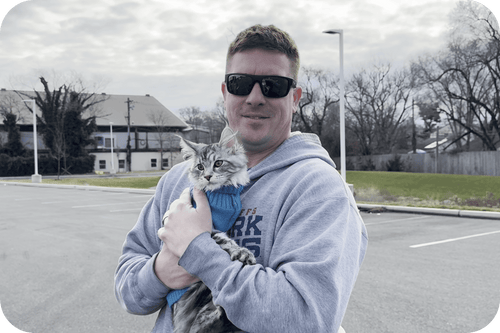



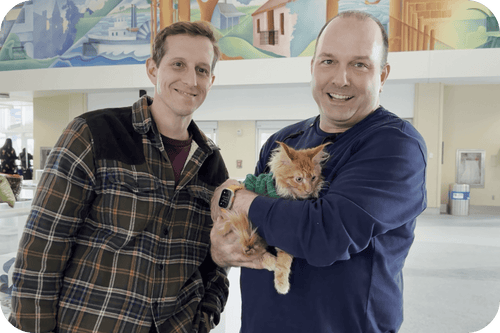
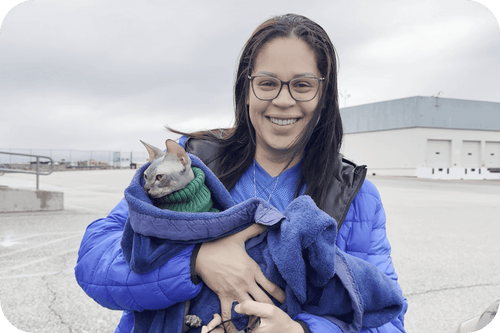

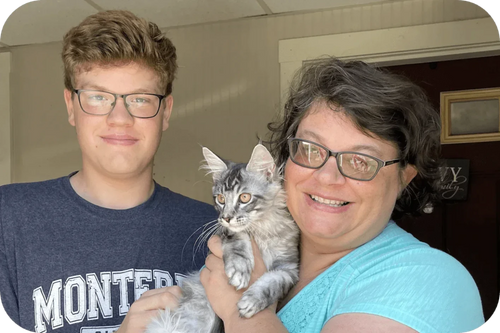

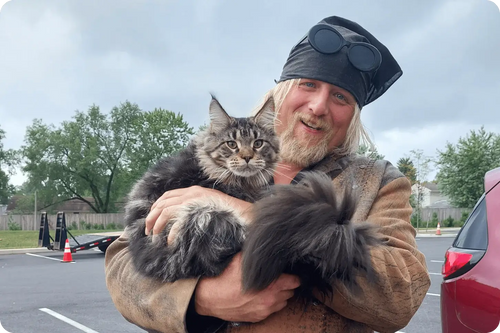


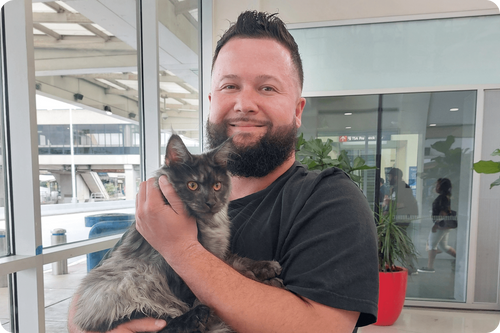










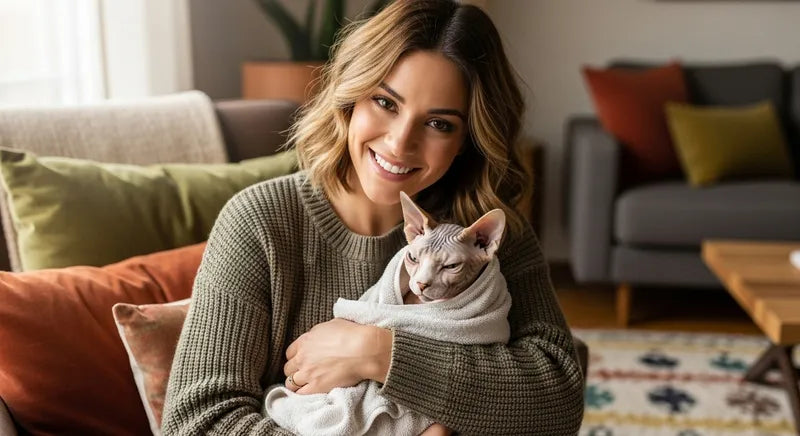
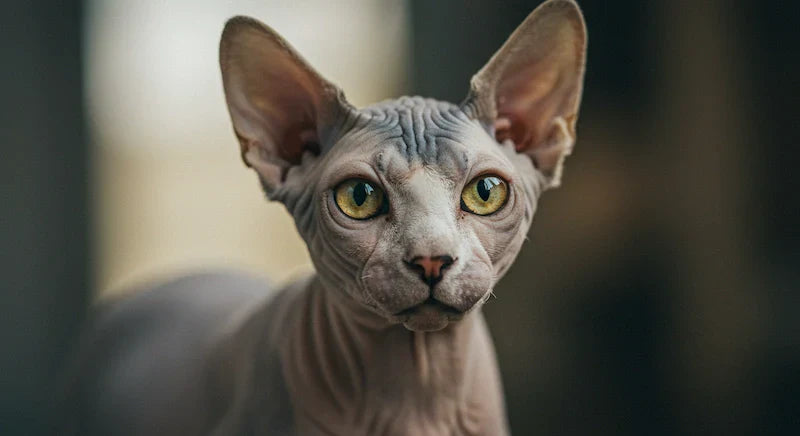
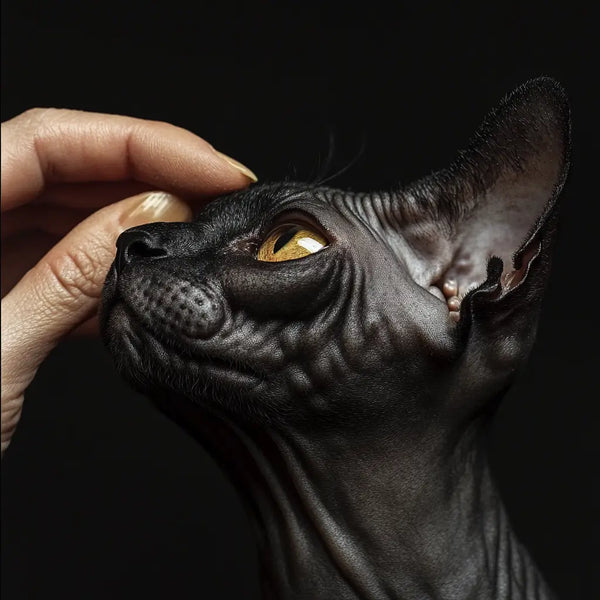

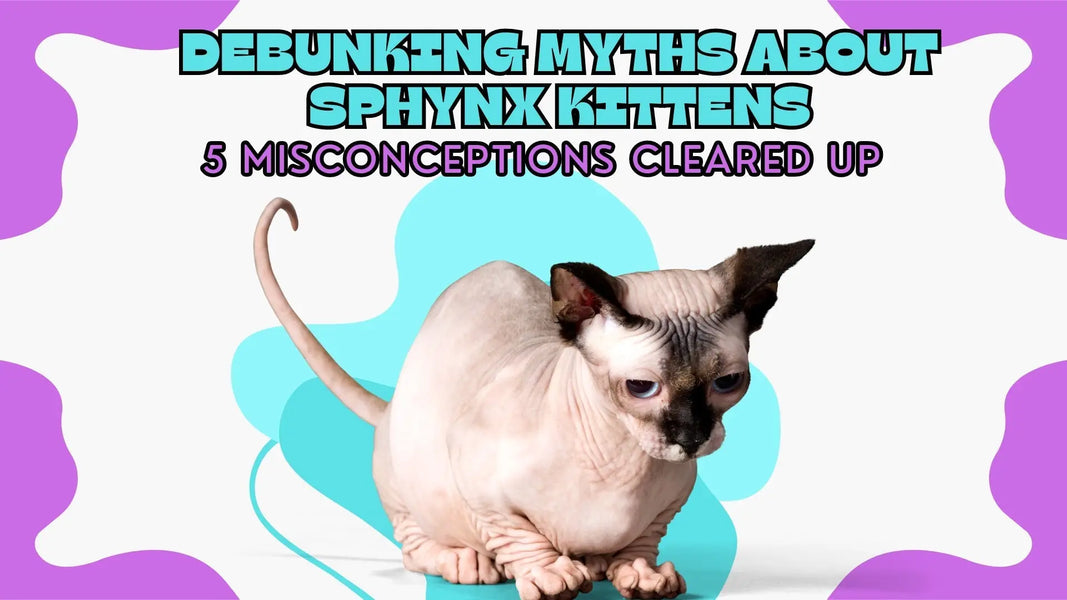





Comments(0)